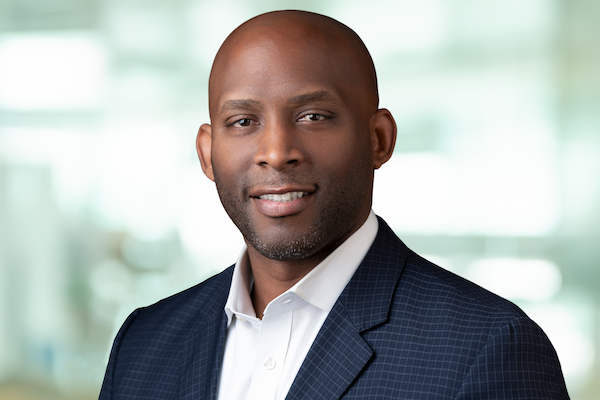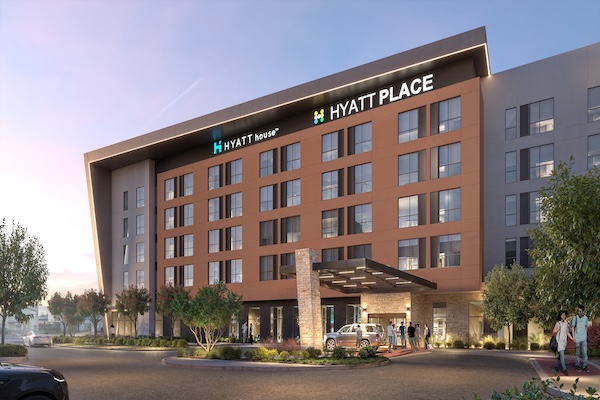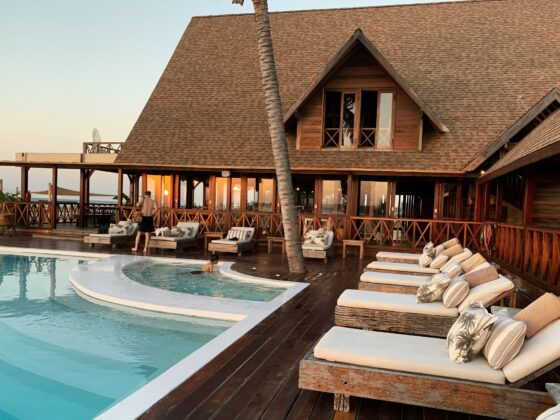Moored in Annapolis, Md., is “Brother’s Keeper.” It belongs to Thomas Penny, the president of Donohoe Hospitality, a hotel management company based out of Bethesda, Md., about an hour’s drive west. Boat naming is an age-old tradition, with some carrying more meaning than others. From “The Santa Maria” to “The Stugots,” vessel names waver from the meaningful to the playful. The appellation affixed to Penny’s boat carries depth as deep as the sea.
Penny’s tenure in hospitality is one of triumph born from tragedy. It started at 17 and a dishwasher job at a hotel making $4.25 an hour. High school graduation neared, he was progressing at work, things looked bright—what better time to celebrate? One evening Penny was out doing just that with his brother, Derrick, two years his senior. In a decision atypical of his age, Penny turned in early since he worked the next morning. It was the last time he’d see his brother, who was killed in a car accident that night.
“The whole evening he was saying how proud of me he was,” Penny recalled. He grew up quickly in those coming days, tasked by his father to deliver eulogy remarks for a brother he shared a bunk bed with. At one point, Penny knelt next to the casket and made a promise: Everything he did going forward, he’d do to make his brother proud.
Am I my brother’s keeper? Yes, he is.
DMV Proud
Penny grew up just outside Washington, D.C., in Seat Pleasant, Md., a neighborhood known more for producing NBA talent than hotel executives (it’s the birthplace and hometown of Kevin Durant).
Eighteen months after washing pots and pans, Penny was named food and beverage director. The executive chef that originally hired him at the hotel now reported to him. At the age of 21, he joined Donohoe, a Bethesda, Md.-based multi-vertical real estate company with roots that stretch back to the late 19th century. There, Penny worked his way up through the ranks, running properties for Donohoe Hospitality, which was launched in 2005 as a hotel operator. He was named president in 2017. In all, Donohoe has six divisions, its newest a residential component, spanning 10,000 units under management, most of which by third party.
Donohoe is firmly entrenched in what’s colloquially known as the DMV (D.C., Maryland, Virginia). It’s built more hotels in the region than anyone else, Penny said, typically going as far north as Baltimore and south as Richmond. Donohoe currently manages 16 hotels in the area, with one exception, a Hampton Inn/Home2 dual-brand property in Las Vegas. The company is also developing a second hotel in Sin City, another dual brand in partnership with Hyatt. “Whenever we get one hotel in a specific market, we try to double or triple down on it,” Penny said. It manages five hotels in total in Washington, D.C., and also has one hotel in Charlottesville, Va., steps from the university. It would like to expand its presence there, Penny said.

Growth Goals
Donohoe Hospitality ideally looks to grow in major urban markets, but not exclusively. One of its more recent projects is the dual-branded AC Hotel and Residence Inn in Reston, Va., part of a 4.8-million-square-foot mixed-use development. There are 267 rooms across the two properties spanning 16 floors, along with the full-service SEVEN Restaurant and the rooftop SYN Rooftop Bar & Lounge. There is even an indoor pool.
Reston is a major hub for technology, is about 45 minutes west of downtown D.C., and just five miles from Dulles International Airport. Penny calls it one of the most intriguing sub-markets in the region, anchored by Reston Town Center, a mixed-use urban development that opened in 2020. Case in point, stand on the rooftop of SYN and you’ll spy the offices of the region’s largest employers—Fortune 500 and 100 companies, the likes of Capitol One, General Dynamics and Salesforce, part of the Dulles Technology Corridor. “You can clearly see their logos,” Penny said.
The hotel opened in January and Penny said it’s already exceeded its expectations of where it would be. “We understood that Reston Town Center is where you want to be,” he said, adding that the dual-brand concept accommodates different types of customer mix. “We wanted to take advantage of the extended-stay offering so that no matter if we have corporate customers coming during the week or families on weekends, we have accommodations for both,” Penny said.
Donohoe owns the hotel, and as a vertically integrated organization it’s part of the strategy to involve all its divisions, including development, construction, management and, when possible, residential. “Ideally, when we’re doing any development, we like four to six divisions to work on it,” Penny said, calling its structure a competitive advantage in developing the Reston hotel.

Capitalizing on the Capital
D.C. is Donohoe’s sandbox with the five hotels it manages there. It’s a city dependent on the federal government running smoothly, something that hasn’t been the norm since the new administration took the reins and began making cuts to the federal workforce. Marriott International, of which Donohoe manages eight of its branded hotels, revised its 2025 RevPAR guidance down on the back of weakened government demand. Still, Penny is bullish on the nation’s capital, a city best known for its museums and mall, but one that continues to reinvent itself in gastronomy and entertainment. “D.C. is back and has been for a few years now,” he said, evidenced by strong rate growth and the return of both corporate travel and association business. The Inauguration didn’t hurt business, either.
According to CoStar, average daily rates in D.C. have picked up appreciably off their pandemic nadir. Rates in D.C. as of March 2025 are averaging more than $200 per night.
Of course, Penny was also bullish on the federal government returning to work; little did he know at the time that the workforce would be drastically cut. Still, as Penny noted, D.C. will always be at the center of things that happen in the world, crowded by donkeys and elephants, alike. “You might have one party with events planned for one weekend and the other party with events planned for the following weekend,” he said.
Absent from Donohoe’s portfolio are independent hotels, favoring brands from Marriott International, Hilton, Hyatt Hotels and IHG. Like many hotel executives, he is often asked about the amount of hotel brands and the potential for not just customer confusion, but how the flooding of brands in a particular market can interfere with areas of protection, encroachment clauses that are typically baked into a hotel management contract. Penny maintains a divergent stance, commenting that if the parent brands have a strong loyalty program that can support additional brands and there is no dilution of performance of existing assets in a specific market, he’s good with it. Conversely, he said, “To the extent that we’re introducing new brands that may directly or indirectly compete against existing hotels is obviously a concern.”

Deep Roots
They say that hospitality isn’t learned: you either have it or you don’t. For Penny, his hospitality bones were forged over a passage in time. His great grandfather migrated north to D.C., in the late 1940s and got a construction job on what would become the very first Marriott hotel—the Twin Bridges Marriott, in contiguous Arlington, Va. As Penny tells it, his great grandfather derived such pleasure working on the hotel’s construction, that when it opened in 1957, he laid down the hammer and took a position at the property. “He had such a great sense of pride in it,” Penny said.
The gratification and fulfillment of his great grandfather passed through to Penny and he carries it with him every day, just like the memory of his brother, using both to guide and sharpen his every day. Penny’s youngish countenance belies his long years of service and leadership and at Donohoe he is helping groom the next generation of hospitality leaders. As a Black man, fairly or not, Penny is often asked his views on matters related to diversity and inclusion, invited to join panels at industry conferences to discuss and frame the matter within the context of the hospitality industry. He understands why people come to him to talk about it and why it remains a charged topic, but his stance is clear: “I’m in the business of creating opportunity and I’m not trying to create opportunity solely for one group,” he said.
In an industry as diverse as hospitality, one that employs people from an array of backgrounds and ethnicities, heterogeneity is seldom an issue within the front-line operational ranks. In the C-suite, it is more so, but here is where Donohoe thrives. “If you look at our senior leadership, everybody’s represented,” Penny said. “There is no intentionality in that outside of finding the best talent.”








